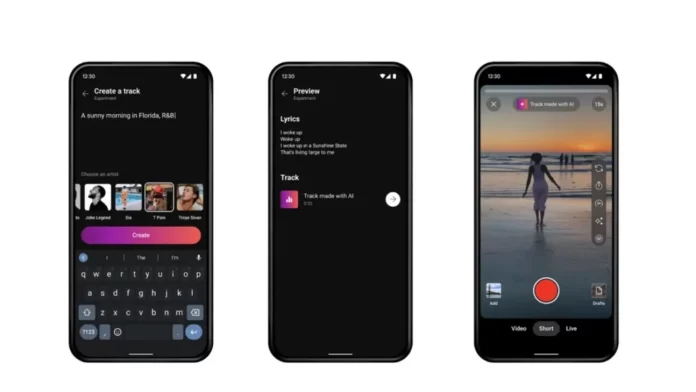
Google introduced its latest music generation model, named Lyria, on Thursday, November 16, touting it as their “most advanced” model to date. Developed by Google DeepMind, Lyria is designed to excel in producing top-notch music, incorporating instrumentals and vocals.
Within the Dream Track experiment, a limited set of YouTube Shorts creators in the US will be able to use the tool to produce “a unique soundtrack” featuring the AI-generated voice and musical style of artists including Alec Benjamin, Charlie Puth, Charli XCX, Demi Lovato, John Legend, Sia, T-Pain, Troye Sivan and Papoose.
Google unveiled two new AI initiatives in collaboration with YouTube. The first, named Dream Track, is an experiment within YouTube Shorts. The second initiative revolves around a suite of Music AI tools being developed in partnership with artists, songwriters, and producers. The goal is to explore how generative music technologies can responsibly contribute to shaping the future of music creation.
This development comes after the earlier announcement this year of YouTube’s Music AI incubator, a program in which the company collaborates closely with artists and the music industry to create new tools and innovations.
Unveiled in August, YouTube’s Music AI incubator was introduced alongside a partnership with Universal Music Group and the publication of a set of AI principles. Sir Lucian Grainge, Chairman and CEO of UMG, issued a statement in response to today’s news, emphasizing the company’s commitment to protecting artists from unauthorized exploitation by generative AI platforms while also providing them with opportunities and advanced creative tools facilitated by AI to enhance their creative and commercial potential.
One of the target artists, Charlie Puth, said:
“YouTube has been a great partner in outlining their approach to AI and understands the need to work together with artists like me to develop this technology responsibly, ensuring it will accelerate creativity instead of replacing it.”
These rapid changes in technology are bound to bring about exciting yet drastic changes in the way we listen to music and how the music industry functions.


